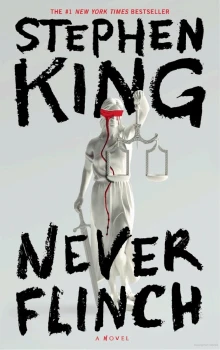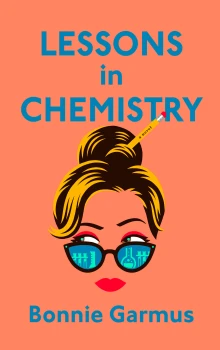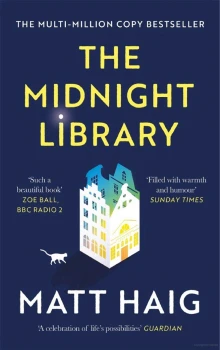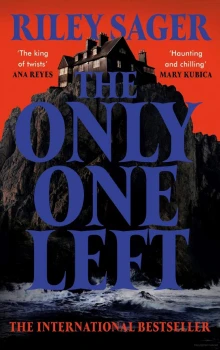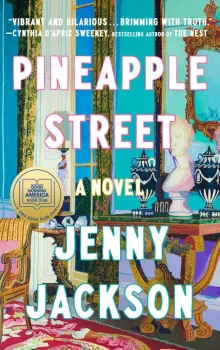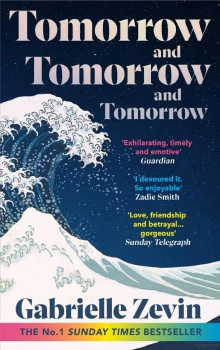Chapter 12
1
The drive from Iowa City to Davenport is a short trip on I-80. Holly, Kate, and Corrie are at the Country Inn & Suites well before noon on Saturday morning. Holly spends the first half of the trip a mile or two ahead of Kate’s truck, glancing every now and then at her phone, where the GPS tracker on the F-150 is a pulsing green dot. Then she drops back, hoping to spot a follow car. She sees one that looks likely. It’s a little Mustang convertible. It speeds up, swapping lanes to pull even with Kate’s truck on the left. Holly’s stomach tightens. She also swaps lanes to get behind the Mustang, cutting someone off and ignoring the blare of their horn. Then the Mustang’s passenger stands up, her long hair whipping in the wind, and shouts, “We love you, Kate!”
The convertible scoots away. Holly lets out a breath and drops back.
They have lunch in the restaurant next door to the hotel and then Kate has her swim. Back and forth she goes, lap after lap, sleek as a fish in her red tank suit. Holly, sitting poolside with a towel in her lap, gets tired just watching her. Kate finally gets out, takes the towel with a muttered thanks, and knots it around her waist. Holly expected some sort of endorphin rush after so much exercise, but Kate seems inward, almost sullen. She picks her phone up from the table where she’s left it along with a paperback novel, speaks briefly to Corrie, who’s at the venue, and ends the call.
“Going to take a forty-five-minute nap,” she says without looking at Holly. “Then the press conference at the DoubleTree. Where we were booked.”
Holly says nothing.
“These itinerary changes are a pain in the ass, Gibney.”
Holly doesn’t engage, just picks up Kate’s book. “Do you want this?”
Kate’s cheeks are flushed and radiant with exercise, but her mouth is turned down at the corners. She’s still pissed about having to travel several miles to do her presser instead of just going downstairs. “Keep it or throw it away. It’s a piece of shit.”
2
In her room during Kate’s nap, Holly turns on CNN and is stunned to see a reporter doing her stand-up in front of the Willow Apartments, where Holly herself once looked at a demo apartment before finding her current place downtown. Behind the reporter are police cars with their jackpot lights flashing and two forensics trucks, one from the city PD and one from the State Police. There’s also a van marked CORONER. The Surrogate Juror Murders have become a cable news staple, and the possible death of someone who served on the Duffrey jury has warranted the network to break, however briefly, into its usual suds-and-rinse of political news.
The reporter says, “All we know now is that one of the jurors in the Duffrey trial, Ellis Finkel, lives in this apartment complex. While police are tight-lipped, it seems possible to assume from the amount of police activity, that something might have happened to Mr. Finkel. It may be that this strange and unique serial killer, hoping to inculcate a sense of guilt in the Duffrey jurors, has, in this case, possibly succeeded.”
A lot of may be and possibly be, Holly thinks.
She considers calling Izzy, but reaches out to Jerome instead. He hasn’t been following the news at all, didn’t even realize that Ellis Finkel might be dead. Assuming it is Finkel that has caused the big police response.
“Have you tried Izzy?” Jerome asks, then before Holly can answer: “Of course not. Izzy will be busy.”
“Very poetic, Jerome.”
“True, Boo. And it’s not our case, anyway.”
“No. It’s not.”
“But you can’t help being curious. That’s my Holly. Hey, guess what? I’m going to the Guns and Hoses game with John Ackerly. He really likes you.”
“I like him, too. I’ve got to see my clients to their press conference soon, Jerome. See if you can find anything out. As you say, I can’t help being curious.”
“Maybe I’ll call Tom Atta. He and I go running sometimes.”
“Really?”
“Up at Bell College. Every now and then Izzy joins us. We puff and pant all around the track.”
“Interesting. Possibly helpful. Are you ready to tell me what’s been on your mind yet?”
Jerome sighs. “I wanted to figure it out myself, but I give up. All I know is there’s something wonky about the May calendar page in Reverend Rafferty’s appointment book. Something about Briggs, the guy who probably killed him. It might have something to do with the other names on that page, too, but I can’t tell what it is for the life of me. Can I send you a screen shot?”
“I think I have it,” Holly says, “but send it to me anyway. When I have time, I’ll take a look. And if you talk to Detective Atta . . . or Izzy . . . let me know.”
“I will.”
3
The press conference features a brighter, livelier Kate, and that night at the RiverCenter she dials the wattage up all the way. Holly and Corrie watch her opening ten minutes from the wings—the strut to stage center, the deep bow, the mic grab, the chants of “Woman Power.” When the boo-birds start to counter-chant (“Go back to the kitchen! Go back to the kitchen!”), she makes her trademark Come on come on come on gesture, and most of the crowd goes nuts, whooping and cheering. When they settle, she asks all the men in the audience to raise their hands.
Holly whispers to Corrie, “She seemed really flat this afternoon, even after a long swim. Her little nap must have pepped her up.”
Corrie smiles and shakes her head. “She’s almost always that way before she goes on. Either quiet and sort of glum, or pissed off about something. Then . . . when she’s on . . . she lives for this.” She adds hastily: “And the cause, of course. Woman Power.”
“I know,” Holly says. “I know she does. I just wish she really understood that doing this is risking her life.”
Corrie gives her a smile. “I think she does.”
Maybe, Holly thinks, but it’s academic knowledge. Most in the head, some in the heart, none in the gut.
Corrie goes back to the greenroom to prepare for a women’s club breakfast the next day (also to be held at the DoubleTree) before the three-hour drive to Madison. Holly prowls the hallways, looking for intruders and finding none. Prowls backstage and finds nothing but a trio of stagehands playing Scat with a greasy deck of cards. They have no interest in Woman Power.
She ends up at stage right, watching with fascination as Kate wraps up the evening’s festivities with another call-and-response. She takes a moment to peek at the screen shot Jerome has sent her and understands at once what was nagging at him. What he couldn’t quite get. Holly understands something else, as well: if she had stared at it for a long time (as Jerome must have), she wouldn’t have seen it. The quick glance was enough because her mind was mostly elsewhere.
Then her mind makes a second leap, and she staggers a little bit on her feet. Oh my God. What if it’s him?
The stage manager looks at her and asks in a whisper if she’s all right.
“Yes,” Holly whispers back.
Onstage Kate asks, “Who you gonna believe?”
“Believe the woman!” they yell back.
She makes that waggling gesture with both hands. “Come on, Davenport, don’t pussy out on me, who you gonna believe?”
“BELIEVE THE WOMAN!”
“When the man says she wanted it?”
“BELIEVE THE WOMAN!”
“When the man swears she said okay?”
“BELIEVE THE WOMAN!”
“You guys! Who you gonna believe?”
“BELIEVE THE WOMAN!” the men yell . . . although if push should come right down to shove, Holly isn’t sure what any man will do. She’s heard women say men are simple creatures. Holly doesn’t argue the idea—such arguments are pointless—but doesn’t really believe it. Women have basements; men have sub-basements.
“That’s right. Believe the woman, respect the woman, and don’t take any shit from people who don’t. Thank you, Davenport, you’ve been so great! Goodnight!”
But they won’t let her go until she’s come out for three bows. Standing O time. Only the boo-birds refuse to get on their feet. Not so many as in Iowa City, Holly observes, and sitting there in their blue shirts, they look like sulky children. She reminds herself that even children can be dangerous, and that leads her back to what she was thinking when she glanced at that screen shot, expecting nothing and getting a lot. Maybe everything. She needs to talk to Izzy, but first she has to take care of her women.
Later on she will think Thank God for the chair. If not for that, Kate could have ended up in Ira Davenport Hospital. Or dead.
4
The RiverCenter stage door is on Third Street, and so Holly has arranged for them to go out a different way, onto Pershing Avenue, where a car and driver provided by Next Page Books will be waiting to whisk them back to the hotel. After Iowa City, Holly expects no problem with their exit (what’s called “exfiltration” in Essentials for Bodyguards), but that turns out to be far too optimistic.
Later, in Madison, Corrie Anderson will fill Holly in on what she’s learned about Kate’s audiences on this tour, much of it from Kate herself. “There are three main after-show groups,” she’ll say. “There are Woman Power fans who just want to wave and maybe get a picture of Kate leaving the building. There are autograph seekers, who can be a little pushier. Then there are the eBayers.”
“The what?”
“Collectors. Brokers. Buy-sell-and-trade guys. They’re rabid and they’re pushy. It’s only partly about money. It’s also about the thrill of the hunt. They want first editions signed, or limited editions—Kate did a couple of those. They want posters, eight-by-ten glossies, even one-sheets from the Showtime Women Now doc she participated in. They have stuff you wouldn’t believe. One woman wanted Kate to sign a pair of panties. They sell their goods on eBay or dedicated collectors’ sites like Kate 4Eva. The true fanatics are as persistent as cockroaches and just as hard to get rid of.”
Holly finds out for herself when they emerge on Pershing. This exfiltration point was supposed to be a dead secret, but there’s a crowd of seventy-five or a hundred people waiting for them. They aren’t taking pix with their phones; they’re waving books, magazines, posters, and other paraphernalia—one has a Gay Pride rainbow flag—all of them calling things like Kate! For my mother, Kate, she couldn’t come! Kate, I came all the way from Fort Collins! Kate, please! Please! I’ve been a fan since 2004! How they knew about Holly’s exit strategy is a thing she never finds out, but after being fooled the first time—possibly just by dumb luck—they somehow do.
A RiverCenter usher is sitting in a folding chair and waiting for Kate to come out. When the crowd surges forward, he gets up, spreads his arms, and does his best to hold them back . . . which is like King Canute trying to hold back the tide. Beyond the waving, yelling eBayers, their driver—a young woman who looks like a college student—watches with a face that says I have no fucking idea what I’m supposed to do now.
Holly’s phone is on her belt, still set to mute. She feels it vibrate, looks down, sees JEROME in the window. She has no time to consider this, let alone answer, because just then a howl of rage cuts through the persistent babble.
“YOUUUU BIIIIITCH!”
A very large man who looks like a gone-to-seed WWE wrestler bulls his way through the crowd. He’s wearing khaki pants and a dirty white tee-shirt. His hair is shaved down to a shadow. His arms are inked and his face is red with fury. He’s swinging a baseball bat. The usher steps in front of him and the man (the Hulk, Holly thinks, the Incredible Hulk) sends him flying into the street with one push.
“YOUUUUU FUUUUCKING BIIITCH!”
Kate freezes, staring with wide, amazed eyes as the Incredible Hulk raises his bat. Corrie lifts one hand in a stop gesture which will work on this man no more than a pitcher of water would work on a forest fire.
Holly doesn’t think, simply kicks the usher’s chair. It skitters across the sidewalk. The Incredible Hulk trips over it and faceplants on the concrete. Blood leaps from his nose and lips. The eBayers are screaming and backing away, some dropping their precious mementos, phones, and Sharpies.
The Hulk rolls over. His lower face is painted with blood. He points at Kate like an explorer pointing out an extraordinary landmark. “YOUUU! MY WIFE LEFT ME BECAUSE YOU YOUUUU!”
He’s struggling to get up. Somewhere a police siren has begun to whoop. Holly says to Kate, “Get in the car.”
Kate goes without question or hesitation, hauling her stunned assistant by one arm. The Hulk has made it to his knees, looking after them. Holly dips into her bag, and when the Hulk turns back to her, she hits him with a faceful of pepper spray.
The crowd draws even further back, as if Holly were radioactive, and she realizes she’s still holding the spray can out in front of her. To the stunned bookstore girl, she says, “Take the women to the hotel. Don’t wait for me. I’ll have to talk to the police.”
5
Her conversation with the cops doesn’t take long. The Incredible Hulk (quite drunk and now more like a sobbing, three-hundred-pound child) is taken away to be booked on an assault charge, and Holly is back at the Comfort Inn before the hotel bar closes. She’s okay until the glass of white wine she’s ordered is placed in front of her, and then she gets the shakes.
So close, she thinks. And: I hate this job.
Her phone, still on mute, vibrates. It’s Corrie, wondering where she is. Five minutes later the women join her. Kate throws an arm around Holly’s neck and plants a kiss on her cheek, uncomfortably close to her mouth.
“From now on I do everything you say, Holly Gibney. I don’t know if you saved my life tonight, but you sure to God saved about twelve thousand dollars’ worth of dental work.”
Corrie slides onto a stool on Holly’s left. “Thank you,” she says quietly. “Thank you so much. My God, did you see the size of him?”
“The Incredible Hulk,” Holly says.
Kate throws back her head and shouts laughter. The bartender asks what Kate wants to drink, and she says Jack, no ice. Corrie says she’ll have what Holly is having. Holly isn’t surprised when the bartender asks her if he can see some ID.
Holly sips her wine. Her phone buzzes. It’s Jerome again. She thinks I can’t talk to him tonight. She’s wiped out and keeps seeing the man in the dirty tee-shirt coming at Kate like a locomotive, the bat upraised. Except I have to talk to him tonight, because I might know who the Surrogate Juror killer is.
The shakes start up again.
“If that chair hadn’t been there,” she says.
Kate looks at her quizzically, head cocked. “What are you saying?”
“The chair. If it hadn’t—”
Kate puts two fingers across Holly’s lips. Very gently. She says, “It wasn’t the chair. It was you.”
Holly pushes away the glass of wine, which she has barely tasted. The bartender comes over. “Is there something wrong with that, Miss?”
“No. It’s fine. But I have to make a call. You two should probably go to your rooms.”
Kate gives a British-style salute, back of the hand to the brow, very pukka sahib. “Aye-aye, Cap’n.”
Holly is not amused.
6
In her room, she calls Jerome and apologizes for not getting back to him sooner. “I was on the job.”
“Everything okay there?”
“Fine.”
“Did you figure out what was buggin me about that calendar page? I’ve been staring at it half the night.”
That was most of your problem, Holly thinks. “I did.”
“For reals?”
“For reals.” Although self-doubt is one of her many default positions, she has no doubt about this.
“True?”
“Yes.”
“Tell me!”
“First, tell me if you found anything out from Detective Atta.”
“I did. Two of the jurors in the Duffrey case committed suicide. Ellis Finkel and Jabari Wentworth. They met during the trial and became lovers. Wentworth’s wife kicked him out of the house when she found out he’d been sneaking around, and with a man. His family shunned him. That might have been a religious thing. Religion kinda sucks, don’t you think?”
“No opinion,” Holly says.
“Anyway, Finkel had AIDS, under control but a constant struggle for him. Short form, the police don’t believe it had anything to do with guilt over what happened to Alan Duffrey.”
“So terrible,” Holly says. “A waste of two lives.”
She finds herself close to tears, partially because of the pointlessness of those deaths, mostly because she’s still dealing with the fact that Kate McKay almost got her head bashed in on her watch.
“Agreed,” Jerome says. “Now tell me what I missed.”
She tells him. There’s silence on the other end.
“Jerome? Are you still there?”
“Fuck,” he says. “Oh, fuck! Really? That simple? Really?”
She hasn’t told him her second deduction, the one that rocked her back on her heels at the RiverCenter. She saves that for Izzy.
7
“Hey, Holly,” Izzy says. She sounds half asleep. “Tom said to fill you in, and I will, but right now it’s been a long day and I’m beat.”
“Try to get un-beat. I might know who the killer is.”
“What?” Izzy goes from fuzzy to wide awake. “Are you shitting me?”
“I’m not sure. Maybe. Jerome told me two of the jurors committed suicide, but he said it probably didn’t have anything to do with the—”
“Yes. I mean no, it didn’t. Holly, if you’ve got something, give!”
Holly doesn’t need to look at the picture of the calendar page on her iPad; doesn’t even need to close her eyes. She sees it, along with every name: BOB, FRANK M., KENNY D., CATHY 2-T. And BRIGGS. Only BRIGGS is different. Not much, just enough.
“Can you look at the picture of Reverend Rafferty’s calendar? Do you have it?”
“Just a sec, I left my iPad in the kitchen.”
Holly has never been in Izzy’s apartment—at least not yet—but she imagines a narrow, easy-care kitchen and Izzy’s purse on the counter. Maybe next to an empty wine glass. She imagines Izzy herself in flappy and comfy cotton pajamas.
“Okay, I’ve got the calendar page. What about it?”
“Let’s start with Reverend Rafferty. I think he was nearsighted, but I think he was also vain. That’s more a guess than a deduction, but did you find glasses?”
“There was a pair in his bedside table, yes. Probably for reading.”
“Look at his appointments for May. Are you looking?”
“Yes. Get to it, please.”
Holly won’t be hurried, because she’s still explaining to herself. “The names are all in caps, and slightly spread out.” In her mind she sees it: not FRANK M. or CATHY 2-T, but F R A N K M. and C A T H Y 2 – T. “He could do that, because the boxes for days of the month are quite big.”
“Yes. Seeing it.”
“But BRIGGS is different. More squeezed together. Not a lot, but it’s there. Jerome saw it, he just didn’t understand what it meant. Are you looking? Do you see?”
“I guess . . . yeah, you’re right.”
“That’s because Reverend Rafferty didn’t make a B. He made a T. It was his killer who turned it into a B. Then, at the end of the name, he added a GS. He tried to make them look the same as Rafferty’s capital letters and did a good job because capital letters are much easier to forge than cursive. What gives it away—”
“The last two letters are tighter,” Izzy says. “Not much, but a little. And . . . yeah, that B could have started life as a T.”
“It was never Briggs,” Holly says. “Rafferty’s appointment was with someone named Trig.” Self-doubt won’t be entirely denied. “I think.”
“Yes! Fuck, yes! He must have used the pen that was next to the appointment book on the counter, because the ink matches perfectly.”
“And he didn’t just scratch out his name, because he thought the police lab might have some voodoo technique that could read it through the scratch-out.” Holly considers. “He should have just taken the whole appointment book. He was too smart for his own good. And maybe paranoid. It was a hurry-up job, after all.”
“The Bill Wilson name might also have been too smart for his own good,” Izzy says. “You need to go back to your Program friend and ask if he’s gone to AA or NA meetings with someone who calls himself Trig.”
“Maybe I don’t have to, and neither do you. I think Trig is Alan Duffrey’s lawyer. Russell Grinsted.”
“Not following. Help me out here.”
“Do you have a pad and pen handy?”
“Sure, on the fridge. For shopping lists.”
“Write down his last name. If you take out the E, the N, the S, and the D, what does that leave?”
“G, R, I, T. Grit?”
“Rearrange them, like you’re playing Wordle.”
“Wordle? I don’t know what—”
“Never mind, just do it.”
A pause while Izzy scribbles on her pad. Then: “Ah, fuck. Trig is buried in Grinsted. Isn’t it? Tom was right about you, Holly. That’s some real Agatha Christie shit right there.”
It really is Agatha Christie shit, Holly thinks. It would work in a book as the big reveal in the last chapter, but does it work in real life? The essential unbelievability of the idea nags at her, it feels like a paper boat caught on a twig, but at the same time it’s just so fracking perfect. And if Grinsted has decided he’s some kind of criminal mastermind, like in a Batman movie . . . someone too smart for his own good . . .
“At the very least, you need to question Grinsted again,” Holly says.
“No shit, and go at him hard,” Izzy says. “First thing tomorrow. Early. But everyone involved thought he gave Duffrey’s defense his best. How sure are you?”
“Not enough,” Holly says fretfully. “I want to believe it, because it’s so elegant, but it still feels shaky to me.”
“Too perfect?”
“Yes.” And Holly has come to believe that perfection will always be out of her reach. “I’m almost positive about the Trig part, though. He changed it to Briggs. I’ll talk to my Program friend tomorrow. Right now you should go to bed.”
Izzy laughs. “Thanks to you, I’m probably too wired to sleep.”
8
Kate’s stalker in Iowa City was Chris, but she’s Chrissy tonight, wearing a shoulder-length dark wig and parked in her unobtrusive Kia outside the Davenport Comfort Inn. Her quarry is inside, in Room 302. Chrissy knows this because she was with the scrum waiting on Pershing Avenue. Holly’s efforts at throwing the eBayers off are for the most part useless; the group Chrissy fell in with knows everything about Kate’s stay in this particular quadrant of the Quad Cities.
Chrissy latched onto a scruffy-looking dude in a Hawaiian shirt who called himself Spacer. Spacer had several posters he hoped to get signed, plus some eight-by-ten glossies. He took Chrissy under his wing, probably hoping to take her to bed later on. Chrissy understood that even with her best makeup on she was no pin-up queen, but for guys like Spacer, still stippled with adolescent acne although he had to be at least thirty, beggars couldn’t be choosers.
To the motley crew waiting outside the RiverCenter, Kate was prey and Spacer was one of the hunters. He called getting autographs “nailing the celebs” and explained to Chrissy that his group of fellow hunters had a text-and-phone network that included people (ratboys and ratgirls, in Spacer-lingo) at the town’s four or five best hotels (good) and three of the RiverCenter ushers (better). The core group of celeb-nailers paid them either in cash or salable autographs.
“Kate’s especially good, because someone might shoot her,” Spacer told Chrissy. “If that happened her value would go way, way up. It’s what happened when someone stabbed Salmon Rushiddy.”
It takes her a moment to realize he’s talking about Salman Rushdie. “What an awful idea.”
“Yeah, tell me about it, but it’s a contentious fuckin society, my darl . . . oh jeez, here she comes!” He raised his voice to a foghorn shout Chrissy could hardly believe came from that skinny body. “Kate! Kate, over here! My sister is your biggest fan! She couldn’t come, she’s in a wheelchair!”
The assembled autograph hunters began to converge on Kate . . . then, the unexpected. Chrissy and Spacer watched, amazed, as the big man with the bat came busting out of the crowd and went for Kate. Watched as the skinny older woman serving as Kate’s security kicked a chair in front of the batman and sent him sprawling.
“Goal!” Spacer cried, and chortled.
The autograph wolves on Pershing got nothing signed—Kate and her assistant were gone in a flash—but Chrissy has no interest in valuable memorabilia. She got the actual room numbers from Spacer, and then ditched him.
Now Kate’s room is dark, and so is 306, the assistant’s room. In between, in 304, the skinny bodyguard has neglected to close her drapes. Chrissy can see her striding back and forth, gesturing, yanking at her hair, and jabbering away on her phone. Before tonight, Chrissy didn’t see her as a problem, but the speed with which she reacted to the batman has caused Chrissy to rethink her assessment.
The skinny bodyguard ends the call. Closes the drapes. A few minutes later, her light also goes out. It’s time for Chrissy to go back to her own place on the other side of town, a shacky collection of cabins called the Davenport Rest. Thanks to Andy Fallowes, she could afford better, but it’s all she deserves.
As she pulls onto the gravel apron in front of Cabin 6, her phone chirps softly (Chris, with whom she shares the phone, has a far more masculine ring). It’s Deacon Fallowes, calling from one of his endless supply of burners.
“How goes the hunt, dear one?” he asks.
“Well, let’s put it this way,” Chrissy says. Her voice is low, with a kind of Bonnie Tyler rasp. “She’s breathing borrowed air.”
“Where are you?”
“Davenport. She’s going to Madison next. It’s a day off. I’ll sleep in a little, then follow. I may be able to take her there, but if I’m going to accomplish our goal without sacrificing myself, Buckeye City might be the best bet. Kate got shoved out of her date there by some singer, but they’ve rescheduled her for the night before. Singer gave up her final rehearsal, or soundcheck, or whatever they call it. I heard it tonight.”
“How?”
“The cancelation and date change I got from McKay’s website. The rest . . . I met some people tonight who know just about everything. Autograph hunters, but on steroids. I think I can find them in every city on her tour. Some of them even follow her from place to place.” Then, belatedly: “Are we having a safe conversation, Deacon?”
“This phone is going into the river as soon as we’re done talking.” As always, Fallowes’s voice is low and pleasant. “Your mission is taking longer than I expected.”
“I got the wrong one in Reno, but that was just supposed to be a warning, anyway. In Omaha, the assistant intercepted the anthrax you sent. I vandalized her luggage. Left a message. Now they have a security woman, and she’s pretty good.”
Silence for a moment. Then Fallowes says, “This isn’t a prayer situation but a real-world solution we’re aiming for, and I can’t emphasize how important it is.” His voice rises and begins to take on that good old gospel pulpit rhythm. “The world must see there’s a price to be paid for apostasy. This woman cannot be allowed to preach her witchcraft. Exodus 22, dear one—Exodus 22.”
“Yes,” Chrissy says. “I know it well.”
“And remember if you should be caught—God will protect you, but Satan is wily—you did this on your own.”
Chrissy feels a dull resentment at that, and perhaps Fallowes gets a sense of how she feels. He isn’t the devil, but he is wily.
“I wish it could all be a simple case of black and white, like with Brenda’s Bitches. Do you remember them?”
Chrissy smiles for the first time that night. “How could I forget? Those stupid scooters. That was quite a day, wasn’t it?”
“Yes. Yes it was. A hallelujah day for sure. Get some rest. I’ll call again.”
But I can never call you, Chrissy thinks. That would be risking your own precious butt, wouldn’t it?
She is horrified at such an ugly, resentful thought. It’s a Chris thought, and although he resides inside her—in a real sense, he is her Siamese twin—she sometimes hates him. As, she supposes, he sometimes hates her.
No, we are two.
Our secret.
Cabin 6 consists of one room with an attached bathroom the size of a closet. The bed sags. The overhead light globe is filled with dead flies. The place reeks with the wet-socks aroma of advanced mildew. In one corner, a pallid and warty toadstool has oozed up between two boards.
She thinks: Expiation.
He thinks: Soonest begun, soonest done.
They think: No, we are two. Separate and equal. Our secret.
Sometimes she gets tired and thinks Why bother thinking about escape? Why bother when the expiation never ends? Why does God have to be so cruel?
She wishes she . . . he . . . they . . . could throw those thoughts, that apostasy, in an incinerator and burn them. God isn’t cruel, God is love. Her unhappiness . . . his . . . theirs . . . is nothing but sin-sickness, like a whiskey hangover. Their fault, not God’s. is own fault, not God’sHis
She opens the bathroom door and slips the fingers of her right hand into the opening on the hinged side. Slowly she pulls the door toward her.
“I repent my rebellious thoughts,” she says.
The pain, first a pinch, becomes excruciating, but she continues to pull the door.
“I repent my fantasies.”
The skin splits on the backs of her fingers. Blood begins to run down the paint-peeling wood.
“I will complete my mission. I will not suffer the witch to live.”
She pulls tighter, and while she feels pain, she also feels the peace of expiation. She finally lets go of the door and pulls her throbbing fingers free. They will swell, but they’re not broken, and that’s good. She needs her good right hand, which she shares with her brother, to do the Lord’s work.
